Sponsored by Redwood Legacy Group at Morgan Stanley
This concert is likely to sell out and tickets may not be available at the door
Lyrics, Vocalist Bios, and Program Notes below
Hallelujah! It’s time for families and music lovers of all ages to join the Eureka Symphony in a holiday rendition of G.F. Handel’s glorious Messiah, Friday and Saturday, December 6th and 7th, at 7:30 p.m. at the Arkley Center for Performing Arts in downtown Eureka. This is an opportunity for community to come together and embrace the comfort and joy that this concert inspires.
Conductor and Artistic Director Carol Jacobson is reuniting the Eureka Symphony’s orchestra with the outstanding quartet of vocal soloists who captivated audiences last season in Mozart’s Requiem. Clara Lisle is described by Opera News as a having “lovely soprano voice with a great deal of power as well as lyricism”. Sara Couden, contralto, is praised by Opera News for her “unusually rich and resonant voice.” David Powell, tenor, has performed and studied extensively from New York to Dell’ Arte, from the Boston Conservatory and Juilliard to Humboldt State University. Kevin Thompson is celebrated by The New York Times as a “stentorian bass,” and by San Francisco Classical Voice as possessing “a voice with extraordinary range, depth, color combined with a commanding stage presence.” All four vocalists, sponsored by Lori Dengler and Tom Lisle, have roots in Humboldt County and treasure this opportunity to perform with and for their community for this cherished holiday tradition. The guest vocalists’ full bios, along with the lyrics for the concert, can be found at EurekaSymphony.org/messiah.
The chorus is the largest in the Symphony’s history, with almost 60 members from the community. These talented and dedicated singers have been rehearsing weekly since the beginning of September at the Eureka Woman’s Club and are excited to join the orchestra and guest vocalists. “For the chorus, their voice is their instrument,” said Jacobson. “Each one is responsible for singing in a way that makes a cohesive group with a cohesive perspective, and they do such a wonderful job. They should be very proud of themselves – I am proud of them!”
Dedicated to the memory of Siddiq Kilkenny, Eureka Symphony Board member and Chorus member
Messiah premiered in Dublin, Ireland in 1742, and quickly became one of the most popular pieces of music ever written. This timeless oratorio, a large-scale dramatic work for chorus, soloists, and orchestra, features the instrumentation characteristic of baroque ensembles–strings, oboes, bassoons, and basso continuo–enriched by trumpets and timpani. Messiah is the source of the beloved “Hallelujah Chorus,” which becomes even more stirring when heard in a full, vibrant performance. Although most often performed during the Christmas season, Messiah is an extended meditation on the life of Jesus, from birth in Part I, through life and death in Part II, to resurrection in Part III. The concert will include about two hours of the three-hour work, drawing from all three parts, and concluding with the unforgettable, heart-lifting Great Amen.
For tickets call (707) 845-3655 and for more information visit EurekaSymphony.org. Tickets range from $21-54 depending on where you are seated, with discounts for season packages. Free Family Tickets are available for up to 2 children (ages 5-12) per paid adult ticket. Best Seat Available RUSH tickets are at the Box Office starting at 6:00 p.m. before each concert but are subject to availability and this concert may sell out. $15 adults, $10 w/student ID. Cash only.
Be sure to join host and Concertmaster Terrie Baune and pianist John Chernoff for “Musical Notes,” 6:30 – 7:00 p.m. before the concert. Learn more about G.F. Handel, Messiah, and other lively and entertaining concert details.
To learn more about the concert in advance, join host Elizabeth Morrison on Zoom from 6:00-7:30 p.m. on December 2, (the Monday before the concert). For details visit “Live & Local Concert Preview”, a free OLLI Special Interest Group. See her summary below.
Vocal Soloists
Sponsored by Tom Lisle & Lori Dengler
Clara Lisle
Described as a “lovely soprano voice with a great deal of power as well as lyricism” (Opera News), Clara Lisle was last seen as Anna 1 in Kurt Weill’s Seven Deadly Sins with Dell’Arte Opera in NYC. Other recent operatic credits include Mélisande in Pelléas et Mélisande also Dell’Arte Opera, Suzel in L’Amico Fritz with Teatro Grattacielo and the Phoenicia International Festival of the Voice, Governess in The Turn of the Screw and Tatiana in Eugene Onegin with Mannes Opera, and Musetta in La Bohème with Pittsburgh Festival Opera.
In addition to the traditional repertoire, she’s performed the role of Madeline Usher in Philip Glass’ The Fall of the House of Usher (Mannes Opera) and was in the premiere cast of John Musto’s Rhoda and the Fossil Hunt with Onsite Opera, ‘onsite’ in the Hall of Saurischian Dinosaurs at New York’s American Museum of Natural History.
Clara holds a Master’s degree and Professional Studies Diploma from Mannes The New School of Music and a Bachelor’s degree in vocal performance with Honors from Trinity Conservatoire of Music, London. Born and raised in Humboldt County, she’s always delighted to return home to perform alongside local musicians for her local community.
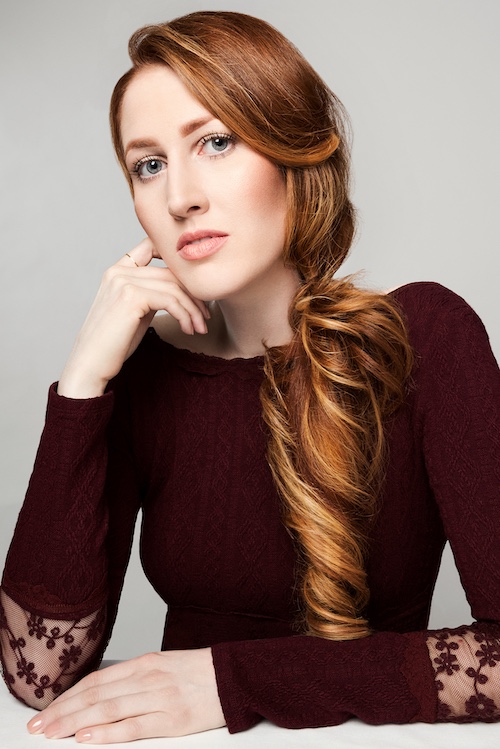
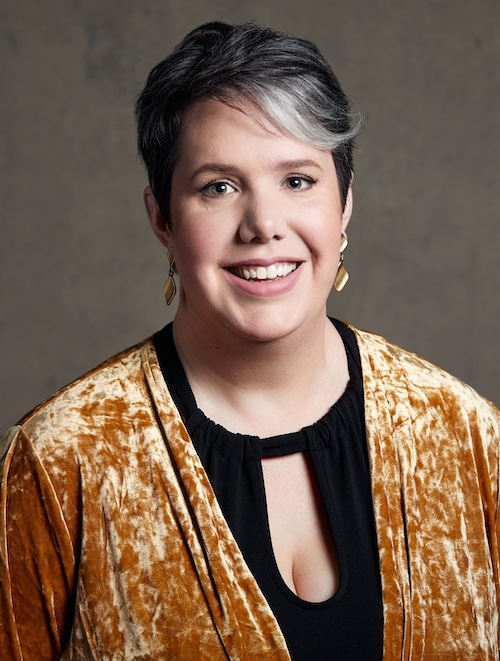
Sara Couden
Praised for her “unusually rich and resonant voice,” contralto Couden is a premier interpreter of operatic, concert, and song repertoire. She made her debut with the Cincinnati May Festival in 2021, performing Julia Perry’s emotional Stabat Mater. In 2022 she made company and role debuts at St. Petersburg Opera (Florida), as Juno/Ino in Handel’s Semele, the Marquis of Berkenfield in Donizetti’s Fille du regiment, and a role debut as the Nurse in Dukas’ Ariane et Barbe-bleu with West Edge Opera. For concert work, Ms Couden returned to the Charleston Symphony for Beethoven’s Ninth Symphony, Mahler’s Kindertotenlieder at the Staunton Music Festival, and the Seattle Symphony for Messiah.
In 2023 she performed the orchestrated version of Alma Mahler’s Fünf Lieder with the California Symphony, as well as Shostakovich’s From Jewish Folk Poetry with the Brooklyn Art Song Society.
David Powell
Born and raised in Humboldt County, tenor David Powell has spent much of his life away in pursuit of study and performance. Most recently, he has played the role of Tamino at Lincoln Center and at the Symphony Space with New York Lyric Opera, and Newland Archer in the world premiere of Age of Innocence with Classical Singing in New York. David has recently returned to the redwoods to perform with the Dell’Arte Company and to perform and provide vocal direction at Ferndale Repertory Theater. David began his operatic training at Humboldt State University (now Cal Poly Humboldt). He then continued to the Boston Conservatory and studied privately in New York with Juilliard faculty. He has had the opportunity to perform across the U.S., but the beauty of Humboldt County continues to lure him back. He is currently completing his Master’s degree in Physical Theater and is delighted at the opportunity to be the tenor soloist in the Messiah with the Eureka Symphony this holiday season.
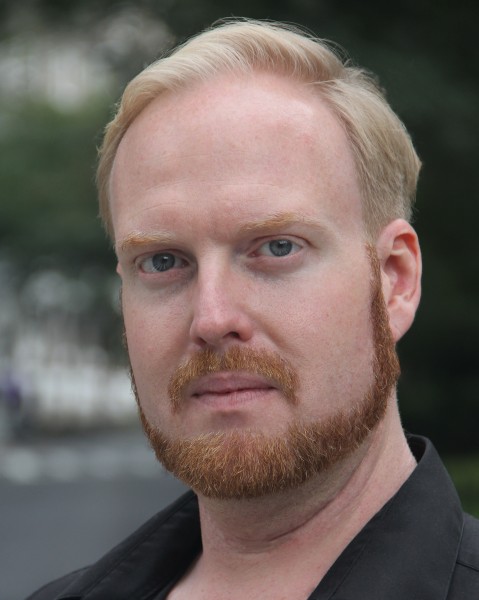
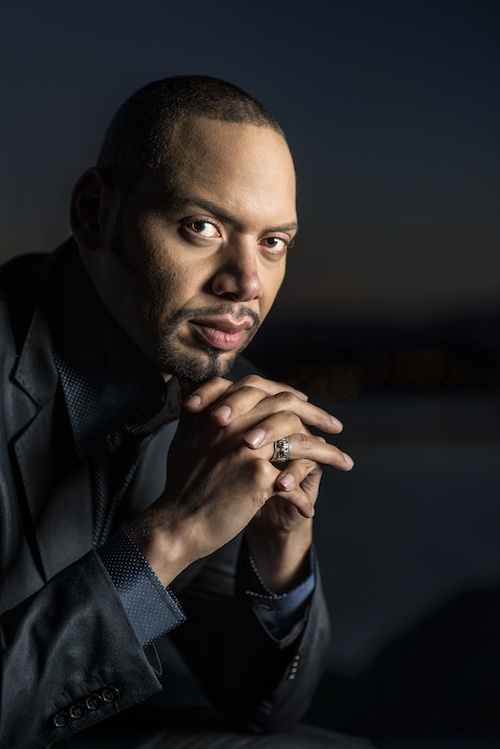
Kevin Thompson
Praised by The New York Times as a “stentorian bass,” and by San Francisco Classical Voice as possessing “a voice with extraordinary range, depth, color combined with a commanding stage presence…”, last season saw Kevin Thompson reprise his performance of Il Commendatore in Don Giovanni for Opera Colorado. He also sang the Duke of Verona in Roméo et Juliette for Dallas Opera, Osmin in Die Entführung aus dem Serail for Opera Grand Rapids, the King/Baobab/Hunter in The Little Prince with Utah Opera, Timur in Turandot with Fargo Moorhead Opera, and on the Mobile Symphony’s annual Christmas concert. He joined The Atlanta Opera to sing Church Jenkins in a workshop of Forsyth County is Flooding as part of their new works festival, and he sang Father Truelove in The Rake’s Progress with Lakes Area Music Festival. This season, he joins Florentine Opera as the Bonze in Madama Butterfly, Opera Carolina as Sarastro in Die Zauberflöte, and Eureka Symphony for Messiah.
In recent seasons, Thompson made house débuts with Washington National Opera as both Der Pfleger des Orest and Ein alter Diener in Elektra, with Fort Worth Opera as Il Re in Aida, and with Utah Opera as Sparafucile in Rigoletto. In concert, Mr. Thompson sang with Roanoke Opera for their Opera Gems gala concert, Eureka Symphony for Mozart’s Requiem, and with Odyssey Opera, he performed Rachmaninoff’s Troika. Thompson also joined the Bard Music Festival for two rarely heard works, singing Canterbury in Saint-Saëns’ Henry VIII and Pistol in Vaughan Williams’ Sir John in Love.
Lyrics
Biblical texts assembled by Handel’s friend Charles Jennens from the King James Version of the Bible.
PART I:
SYMPHONY (orchestra alone)
Comfort ye, comfort ye my people, saith your God; speak ye comfortably to Jerusalem; and cry unto her, that her warfare is accomplished, that her iniquity is pardoned.
RECITATIVE (Tenor)
The voice of him that crieth in the wilderness: Prepare ye the way of the Lord: make straight in the desert a highway for our God.
AIR (Tenor)
Every valley shall be exalted, and every mountain and hill made low, the crooked straight and the rough places plain.
CHORUS
And the glory of the Lord shall be revealed, and all flesh shall see it together; for the mouth of the Lord hath spoken it.
RECITATIVE (Bass)
Thus saith the Lord of Hosts: Yet once a little while and I will shake the heavens and the earth, the sea and the dry land; and I will shake all nations; and the desire of all nations shall come. The Lord, whom ye seek, shall suddenly come to His temple, even the messenger of the covenant, whom ye delight in: behold, He shall come, saith the Lord of Hosts.
AIR (Alto)
But who may abide the day of His coming? and who shall stand when He appeareth? For He is like a refiner’s fire.
CHORUS
And He shall purify the sons of Levi, that they may offer unto the Lord an offering in righteousness.
RECITATIVE (Alto) and CHORUS
O thou that tellest good tidings to Zion, get thee up into the high mountain: O thou that tellest good tidings to Jerusalem, lift up thy voice with strength; lift it up, be not afraid; say unto the cities of Judah, Behold your God! Arise, shine, for thy light is come, and the glory of the Lord is risen upon thee.
RECITATIVE (Bass)
For behold, darkness shall cover the earth, and gross darkness the people; but the Lord shall rise upon thee, and His glory shall be seen upon thee, and the Gentiles shall come to thy light, and kings to the brightness of thy rising.
AIR (Bass)
The people that walked in darkness have seen a great light; and they that dwell in the land of the shadow of death, upon them hath the light shined.
CHORUS
For unto us a Child is born, unto us a Son is given, and the government shall be upon His shoulder; and His name shall be called Wonderful, Counsellor, The Mighty God, The Everlasting Father, The Prince of Peace.
RECITATIVE (Soprano)
There were shepherds abiding in the field, keeping watch over their flock by night.
And lo! the angel of the Lord came upon them, and the glory of the Lord shone round about them, and they were sore afraid.
And the angel said unto them, Fear not; for behold I bring you good tidings of great joy, which shall be to all people; for unto you is born this day in the City of David, a Saviour, which is Christ the Lord,
And suddenly there was with the angel a multitude of the heavenly host, praising God and saying:-
CHORUS
Glory to God in the highest, and peace on earth, goodwill towards men.
AIR. (Soprano)
Rejoice greatly, O daughter of Zion; Shout, O daughter of Jerusalem! Behold, thy King cometh unto thee! He is the righteous Saviour, and He shall speak peace unto the heathen.
CHORUS
His yoke is easy and His burthen is light.
PART II
CHORUS
Behold the Lamb of God that taketh away the sin of the world.
AIR (Alto)
He was despised and rejected of men; a man of sorrows and acquainted with grief. He gave His back to the smiters, and His cheeks to them that plucked off the hair: He hid not His face from shame and spitting.
CHORUS
Surely He hath borne our griefs, and carried our sorrows! He was wounded for our transgressions; He was bruised for our iniquities; the chastisement of our peace was upon Him. And with His stripes we are healed.
CHORUS
All we like sheep have gone astray; we have turned every one to his own way. And the Lord hath laid on Him the iniquity of us all.
RECITATIVE (Tenor)
All they that see Him, laugh Him to scorn; they shoot out their lips, and shake their heads, saying
CHORUS
He trusted in God that he would deliver Him; let Him deliver Him, if He delight in Him.
CHORUS
Lift up your heads, O ye gates, and be ye lift up, ye everlasting doors, and the King of Glory shall come in. Who is the King of Glory? The Lord strong and mighty, the Lord mighty in battle. Lift up your heads, O ye gates, and be ye lift up, ye everlasting doors, and the King of Glory shall come in. Who is the King of Glory? The Lord of Hosts, He is the King of Glory
INTERMISSION
RECITATIVE (TENOR)
Unto which of the angels said He at any time, Thou art My Son, this day have I begotten Thee?
CHORUS
Let all the angels of God worship him.
AIR (Alto)
Thou art gone up on high, Thou hast led captivity captive, and received gifts for men; yea, even for Thine enemies, that the Lord God might dwell among them.
CHORUS
The Lord gave the word, great was the company of the preachers.
CHORUS
Their sound is gone out into all lands, and their words unto the ends of the world
CHORUS
Let us break their bonds asunder, and cast away their yokes from us.
RECITATIVE & AIR (Tenor)
He that dwelleth in heaven shall laugh them to scorn the Lord shall have them in derision.
Thou shalt break them with a rod of iron; Thou shalt dash them in pieces like a potter's vessel.
CHORUS
Hallelujah: for the Lord God Omnipotent reigneth. The kingdom of this world has become the kingdom of our Lord, and of His Christ; and He shall reign for ever and ever. King of Kings, and Lord of Lords. Hallelujah!
PART III
AIR (Soprano)
I know that my Redeemer liveth, and that He shall stand at the latter day upon the earth; and though worms destroy this body yet, in my flesh shall I see God. For now is Christ risen from the dead, the first-fruits of them that sleep.
CHORUS
Since by man came death, by man came also the resurrection of the dead. For as in Adam all die, even so in Christ shall all be made alive.
RECITATIVE & DUET (Alto and Tenor)
Then shall be brought to pass the saying that is written, death is swallowed up in victory.
O death, where is thy sting? O grave! where is thy victory? The sting of death is sin, and the strength of sin is the law.
CHORUS
But thanks be to God, who giveth us the victory through our Lord Jesus Christ.
AIR (Soprano)
If God be for us, who can be against us? Who shall lay anything to the charge of God's elect? It is God that justifieth, who is he that condemneth? It is Christ that died, yea, rather that is risen again, who is at the right hand of God, who makes intercession for us.
CHORUS
Worthy is the Lamb that was slain, and hath redeemed us to God by His blood, to receive power, and riches, and wisdom, and strength, and honour, and glory and blessing. Blessing and honour, glory and power, be unto Him that sitteth upon the throne, and unto the Lamb, for ever and ever. AMEN.

The Divine Inspiration – Messiah concert is dedicated to the memory of Siddiq Kilkenny
Siddiq Steven Kilkenny (May 29, 1946– July 24, 2024)
The Eureka Symphony family is saddened by the loss of Siddiq Kilkenny, a visionary leader who served on our Board of Directors, lending his energy and positivity to many committees, including President. Siddiq drew people in with his twinkling eyes and smile and held them close with his empathy and sincerity. He was known for his heartfelt laugh, his vibrancy and aliveness. He was wise and kind and loving, a gentle soul, whose spirit will live on in all those he touched. When he sang in the Symphony Chorus for Messiah, he filled the room with joy and love.
We miss him dearly, but as his family wrote, “he returned to stardust with deep gratitude for a life of awe, wonder and great love.” Please read his full obituary at the Lost Coast Outpost. His life of giving is an inspiration to us all.
Additional Program Notes for “Divine Inspiration”
Elizabeth Morrison excerpts from her “Live and Local Concert Preview”
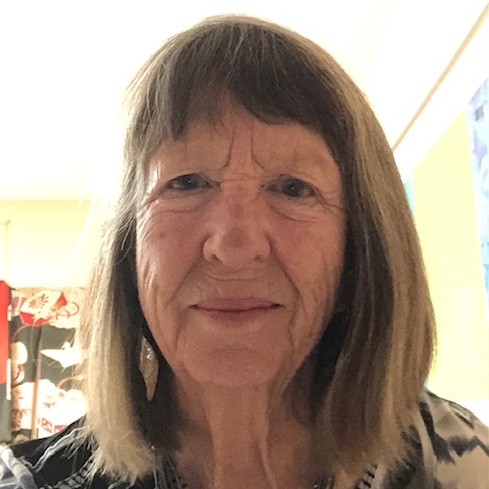
The annual holiday concert is always a special time for the Eureka Symphony. Most years, we present a variety of offerings. In 2023, for example, there were seven pieces on the program, including Gwyneth Walker’s Symphony of Grace, a medley of Hanukkah songs and some Irving Berlin favorites. This year is different: it’s all Messiah. It’s not all of Messiah, but it’s most of it–about two hours of music, out of a total of roughly two and a half hours, and it fills the entire program.
Eureka Symphony does an all-Messiah holiday concert from time to time; the last one was six years ago, in the 2018-2019 season. This one is even longer, and there are several pieces you have not heard before, at least from us. Our soloists are Clara Lisle, soprano, Sarah Couden, alto, David Powell, tenor, and Kevin Thompson, bass. These are the singers who sang Mozart’s Requiem with us last season, so you know they will be splendid.
Not only is there more Messiah, the chorus is bigger as well–58 voices, the largest chorus we’ve had. But the orchestra is quite a bit smaller, which brings us to the most important difference. We are approaching Handel’s music in a fundamentally different way. Our focus has moved from just reveling in the music, not that there’s anything wrong with that, to understanding the piece as a drama, not unlike opera or theater. Messiah has a story to tell. It has a dramatic arc. But to grasp it, the text needs to be clearly heard. Certainly the solo numbers need to be heard, and usually are. But we also need the text in the choruses. Handel wrote 21 choruses for his “sacred oratorio;” we are doing 19 of them. If they are not presented with great individuality, if each one does not move the story along, then that sense of drama is lost, no matter how beautifully they are played and sung.
Thus Carol’s decision to trim down the orchestra: we are keeping focus on the singers and the words. This year the Eureka Symphony has about 65 regular players. This weekend, the orchestra will number just 36 at the most, and 15 at the least. For the choruses, it will be a chamber orchestra of 33 players, mainly strings, joined by two oboes, one bassoon and harpsichord. This group is called the ripieno, an Italian word meaning “stuffed.” When the chorus stands up to sing, watch for all the players on stage to play with them. When the chorus sits down and a soloist takes the stage, the orchestra will play “senza ripieno,” without the full orchestra, and just a small group of eight violins, three violas, two cellos, one bass, and John Chernoff on harpsichord will accompany the soloist.
For three special choruses, though, the ripieno will actually grow with the addition of two trumpets and timpani. These choruses come at the climax of each of Messiah’s three parts: Glory to God in Part I; the Hallelujah Chorus in Part II, and Worthy is the Lamb, at the end of Part III. The trumpets and timpani add the final touch of brilliance to these special moments.
All this is about getting closer to Messiah through the text. It’s about Jennens’ Messiah as well as Handel’s. Charles Jennens (1770-1773) is the librettist who assembled the text, drawing mostly from the King James version of the Bible and the Book of Common Prayer, and presented it to Handel to set to music. A friend of Handel’s, 15 years his junior, a wealthy landowner, an aristocrat, a scholar who also edited five Shakespeare plays, he worked with Handel on five oratorios. Messiah was their third collaboration.
It’s odd how thoroughly un-famous the author of perhaps the most famous work of music in the world is. Even in Handel’s day, Jennens was not very visible. All his libretti, including Messiah, were published anonymously and given freely. And yet his text was very important to him. A recent book, Every Valley, by Charles King, gives us a vivid picture of Jennens writing his Biblical texts on separate sheets of paper with a quill pen, shuffling and reshuffling the pages, and tying them together as themes revealed themselves to him. He eventually arranged his “Scripture Collection,” as he called it, into the three Parts of what became Handel’s oratorio. Parts I and II correspond to the important parts of the Church’s year: Part I to Christmas, Part II to Easter. Part III, which Jennens called “A Hymn of Thanksgiving for the final overthrow of Death,” is about the resurrection of the dead, so it could be said to exist outside time.
Once we start listening to the text, we realize that Handel is very good at something called “word painting,” where the music follows the text quite literally. In the opening tenor solo Every Valley, for example, the full text is, “Every valley shall be exalted, and every mountain and hill made low, the crooked straight and the rough places plain.” Whenever the word “exalted” appears, the music too rises. When the mountains and hills go low, the music does too. The “rough places” shake, and then became, well, plain. It adds to the enjoyment when you pay attention to what Handel does with the words, and you will find many examples at the concert if you follow the words printed in the insert to your program.
But there is more. Handel’s real brilliance was at matching his music, not just to words but to the feelings of the text. Handel was an experienced opera composer; by the time he wrote Messiah he had already written 42 of them. Operas are all about feelings; the more preposterous the plot, the more a composer must call on his skill to make you feel real emotions anyway. So when Handel took up the story of Messiah he was on solid ground, and knew exactly how to bring it to life.
Each of the choruses, then, has its own part of the story to tell. For example, there is a chorus in Part I, He shall purify, whose full text is, “And he shall purify the sons of Levi, that they may offer unto the Lord an offering in righteousness.” In the time sequence of the story, this comes before Jesus’s birth. What is it about? Surprisingly, it is close to an academic discussion– not the kind of topic we look for in an opera. And yet that it what it is. The “Sons of Levi” are one of the 12 tribes of Israel, and they are a class of priests, people who explain the law. The chorus is a kind of explanation what is expected of us when the Messiah comes. Listen to the very precise 16th notes sung by the different sections of the chorus. Handel is showing us the reasoning mind at work. The chorus is examining ideas, turning them over and over. It’s in G minor, giving it a pensive and rather melancholy sound. See if you can picture a group of scholars, speculating about the coming of the Messiah.
Another example is the chorus in Part II All we like sheep. The text begins, “All we like sheep have gone astray; we have turned every one to his own way.” Again there is word painting. As in He shall purify, there are quick running 16th notes, but where those expressed a thought process, these evoke a light-hearted turn away from right action. We, like sheep, have tuuuuured, everyone to his own way. It’s tricky business, because Handel is showing us a couple of things at once. The words suggest that turning to our own way is wrong, and we know it is, but the music expresses the unselfconscious fun of it all. It is great to be mindless, like sheep. And the music sounds that way until suddenly, it doesn’t. The fun comes to an abrupt halt, the music changes from scampering to solemn, then portentous, and the text shows us the consequences. “The Lord hath laid on him the iniquity of us all.”
As in these examples, we can read all the choruses as full of meaning, quite capable of encoding scenes or sermons in their perfect matching of words and music. Here’s one more example, with a different feeling: He trusted in God. It’s the next chorus after We like sheep, separated from it by only a brief statement by the tenor. The words are, “He trusted in God that he would deliver Him; let Him deliver Him, if He delight in Him.” The mood is sarcastic; the chorus is a hostile crowd, taunting Jesus. If God likes him so much, they are saying, why does let him suffer? Couldn’t God just take him out of his suffering? Over and over, the crowd taunts, “Let him deliver him, if he delight in him,” and the second syllable of “delight,” the “light,” drawn out over many notes, turns into a mocking laugh. Listen for Handel somehow conjuring a vivid laugh out of nothing.
While marveling at Handel and Jennens, we might think for a moment about the religious content of Messiah. We value inclusiveness, so why are presenting a religious piece as if it were a symphony, overture or concerto? It turns out that this was controversial in Handel’s day also. Many wondered why a sacred oratorio was being given at Covent Garden Theater, rather than in St. Paul’s Cathedral. Messiah only became popular when it was performed as a charity event in the chapel of London’s Foundling Hospital.
Simply put, not everyone is a Christian. Of course anyone is free to simply revel in the music and ignore the religious content, but it’s harder when we focus on the text. I can’t resolve this issue, but I found some comments in an article called “A Jew goes to Handel’s Messiah at Christmas,” in the Jewish online magazine Mosaic. The author, Seymour Epstein, is contemplating the ways Jews cope with the majority culture, especially at Christmas, so he books an outing to a performance of Messiah. The first thing he notices is that the Part I is largely composed of text from the Hebrew Bible, especially the book of the prophet Isaiah. He knows these texts! He’s interested in the alto recitative that goes, “Behold, a virgin shall conceive, and bear a son.” “Hmm,” he thinks. “No Hebrew-literate Jew can listen to that mistranslation without wincing, knowing that there is a different word for virgin, and that the word in this means ‘young girl.’” Musing on Jennens’ use of the Hebrew Bible, he concludes that Christians play with early texts to enhance their narratives, and so do Jews. Starting to feel more relaxed, he begins wondering if he will be okay with leaping to his feet for the Hallelujah Chorus. Then he recognizes the word, a contraction meaning “Praise God,” as one of the two Hebrew words used without translation in the oratorio, the other being Amen. “To have that glorious chorus repeat in uplifting notes our one-word poem of praise to the Lord in the original is actually a moment any Jew can appreciate. A friend once remarked that if you look carefully at the Hebrew letters of Hallelujah, they are the four letters of God’s ineffable name (yud, heh, vav, and heh) and la-la-la. And that is what Handel’s Messiah can be for Jew and Christian alike.”
Elizabeth Morrison excerpts from her “Live and Local Concert Preview”